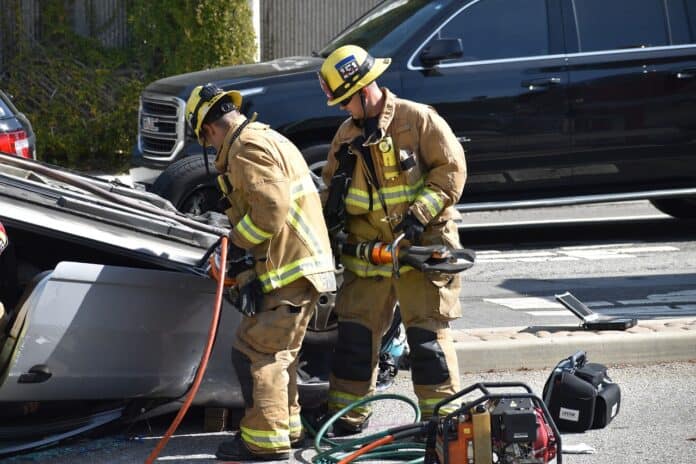
Filing of an auto accident report is obligatory by law to save one against legal and/or financial adversities that may strike if an accident occurs. Where an accident then occurs, it provides an official report, some sort of a documented proof, that indeed there was an incidence.
This serves for insurance cover, court suits, and maybe even your peace of mind. Failure to report an accident will involve fines, penalties, and even in some instances, criminal charges. Knowing what the law requires where you live can save you from unnecessary headaches and ensure that you do everything that is required of you.
When Does Reporting Become Necessary?
Generally speaking, the underlying basis of the law requires drivers to report an accident to the police if there are injuries or substantial property damage as a result. Some states even require it in the case of fender benders where damages amount to more than some sum of money. It is always best to report the incident, even if it appears minor.
It often occurs that injuries do not manifest themselves until hours, or even days, have passed, and damage to vehicles that initially appears superficial actually proves to be much more serious than perceived.
There are a number of disadvantages to failing to report, particularly if the party is thinking there might someday be an insurance claim involved. This is simply because so many insurance companies consider that formal report necessary for claims filed.
Stop at Scene
No matter what happened on the scene due to an accident, a motorist should, is required always to stop. In some cases, if that is not done, serious legal consequences including hit-and-run charges may be imposed, attracting fines, suspension of licenses, or even imprisonment.
It is also a responsible thing to do at the scene for one to take a look to see whether other people that are involved in the accident are okay. If they are injured, calling the emergency services will ensure the injured get medical attention as soon as possible.
Information Exchange
After addressing the aspect of safety, information exchange with the other driver(s) will be the next logical step. The information needs to include: Names, addresses, driver’s license numbers, vehicle registration numbers, and details of insurance covers. It has to be complete and accurate as incomplete provision may be translated to mean some legal problems or insurance claim complications. Details of the witnesses, if any, should be in the information; hence, their contact details will be needed since they are the ones who can shed light on what really happened and corroborate your account in court, should the accident be disputed.
Law Enforcement Reporting
Most of the time, if injuries are involved, the police have to be called onto the scene. Next, this would then be followed by the police investigating what happened, taking statements from all persons involved, and making an official police report of the accident.
This will, in turn, be one of the most vital pieces of evidence in making insurance claims and instituting legal action. If no police are dispatched, then drivers typically must file the report themselves, sometimes within a certain timeframe, at the discretion of the jurisdiction.
In most instances, this can be done online or over the phone, as well as in person, at any police station. The presence of an official report helps protect liability and assists with the efficient processing of insurance claims.
Requirements and Deadlines for Reporting
The jurisdictional requirements and deadlines for reporting also apply. In some jurisdictions, the reporting requirement is within 24 to 72 hours depending on the state or province. Threshold limits in terms of amount of property damage apply in others.
For example, in some jurisdictions a report must be filed if the estimated damage is over $1,000. The need to report, if it involves injury and death, more often than not, calls for an immediate case.
Insurance Companies themselves have some reporting requirements set and most insurance holders are strictly tied to an agreement of immediately reporting any incidence within a considerably small time of its occurrence with them so as to get in on time upon claims. This is, in fact, necessary because if this is not done, then most probably a chance exists that the claim would be rejected or further complications can arise.
Legal Consequences of Not Reporting an Accident
Not reporting an accident can be quite serious from both legal and financial perspectives. The very momentary filling also keeps states off one’s back because most will further fine drivers who fail to file within the prescribed time frame, and insurance carriers may reserve rights to deny compensating for damages if an accident was never recorded.
Sometimes it is difficult to establish incidence of liability or repudiate undeserving claims unless there is filed on record accident report. In the more serious occurrences, failure to stop at the scene of an accident and failure to report one is brought to criminal charges that may include possible fines, suspension of licensure, or imprisonment. The consequences for not reporting far outweigh the inconvenience of filing a report.
Final Thoughts
Basically, understanding what the law requires as far as reporting accidents saves a driver from fines, insurance complications, and even possible legal complications. Although some of these details may be different for different states, one basic principle remains the same: stop at the scene, assist when needed, exchange information, and report on the incident.
In this way, motorists legally and financially protect themselves from possible complications stemming after the accident. Proper accident reporting will serve your legal responsibility, protection of rights, and ease in the processing of insurance claims and other judicial procedures.



